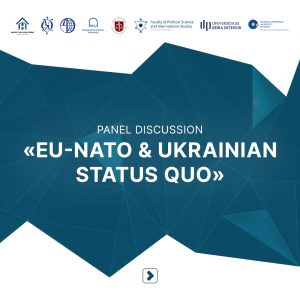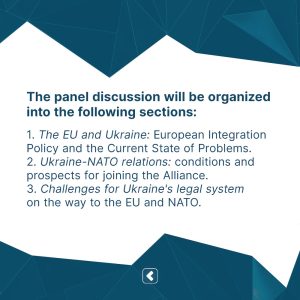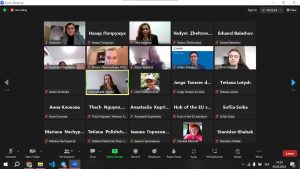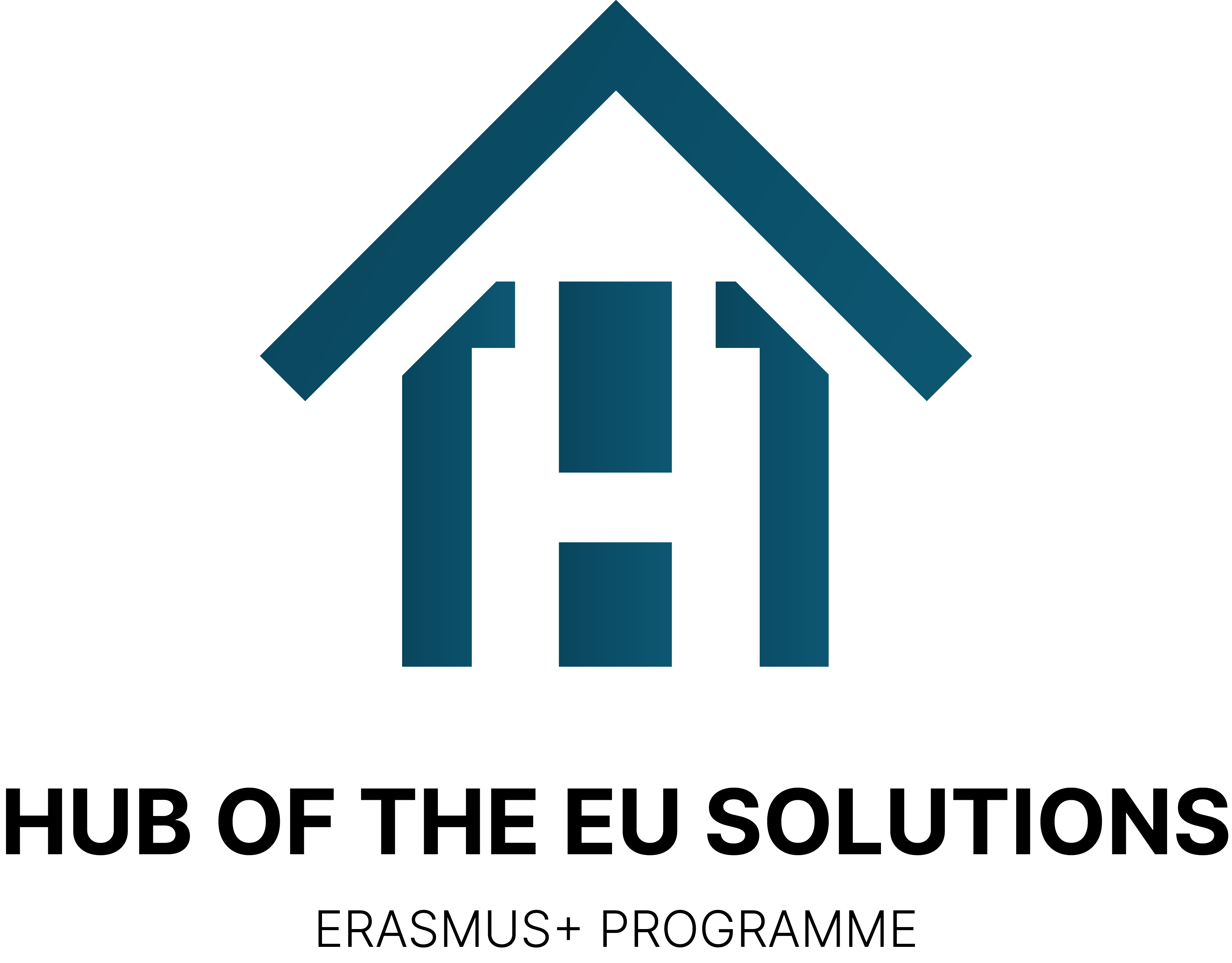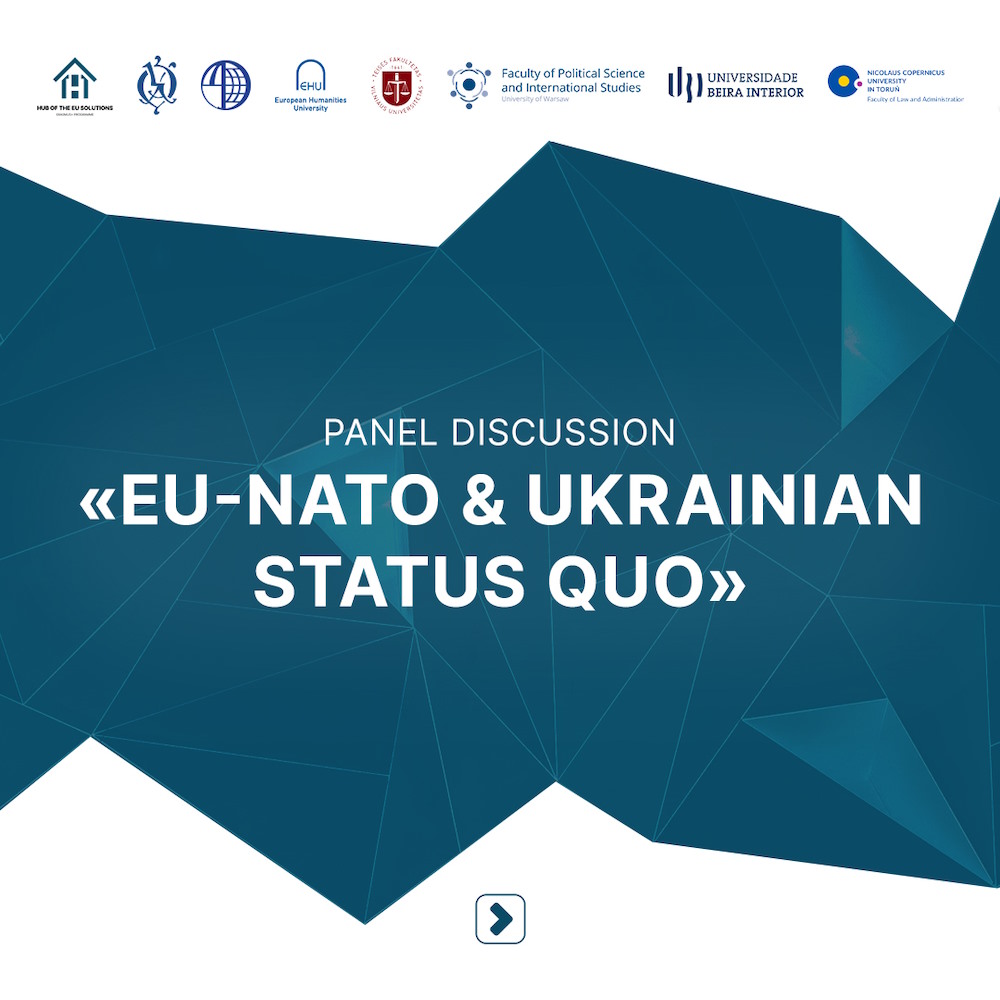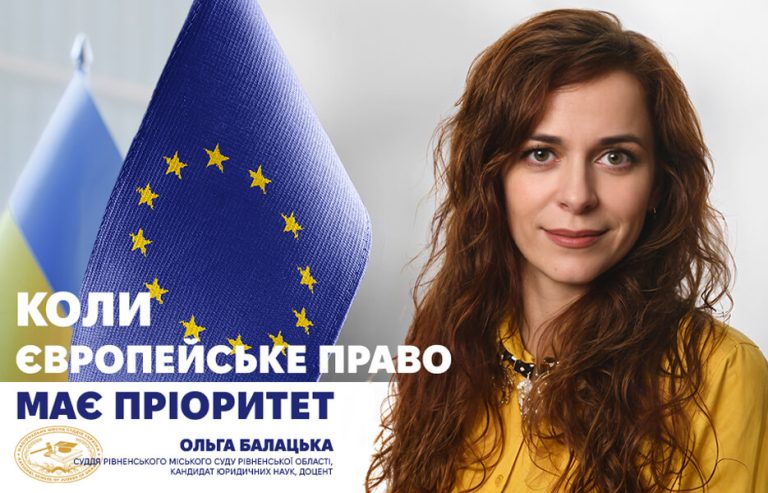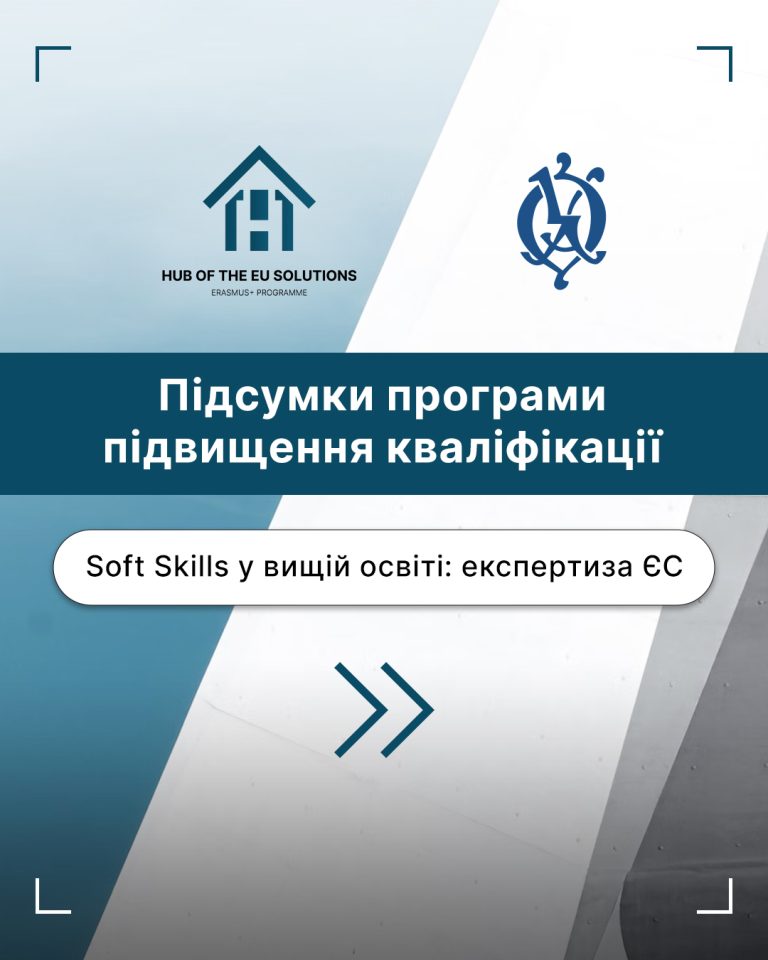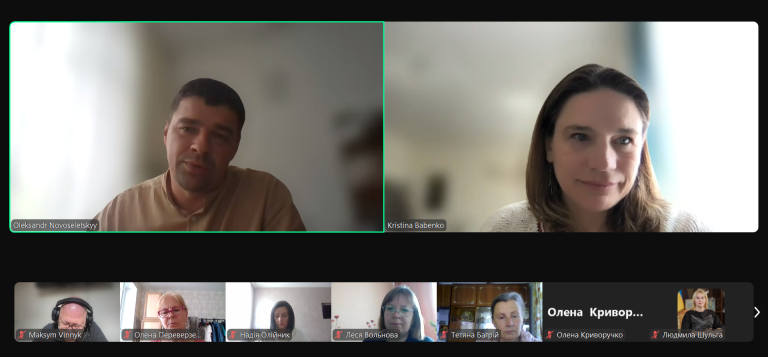On March 5, as part of the HUB of the EU solutions grant project, the National University of Ostroh Academy hosted a panel discussion “EU-NATO and the Ukrainian status QUO”.
The event brought together experts, representatives of embassies and guests from various fields, and became a platform for an interesting exchange of views and opinions on current issues.
Partners of the event: The National University of Ostroh Academy, in particular, the I. Malynovskyi Institute of Law, the Institute of Linguistics, the Institute of International Relations and National Security; the State Enterprise “General Directorate for Servicing Foreign Missions”; the University of Warsaw (one of the largest state higher education institutions in Poland), with the Faculty of Political Science and International Relations as a partner in organizing the discussion.
Other partners were: Mykolaiv Copernicus University, namely the Faculty of Law and Management, Beira Interior University (Portugal), European Humanities University (Lithuania) and the Academic Department of Social Sciences, Vilnius University (the oldest and largest higher education institution among the Baltic States, one of the most famous universities in Northern Europe). The Faculty of Law and the Center for Ukrainian Law, which operate on the basis of Vilnius University, also became partners.
The participants were greeted by authorized guests, including the project manager of the HUB OF THE EU SOLUTIONS, Director of the Educational and Research Institute of Law of the National University of Law Academy, PhD in Law, Associate Professor Olha Balatska, Assistant Rector for International Relations and Fundraising of the National University of Law Academy, Doctor of Psychology, Professor Eduard Balashov, and Legal Advisor to the USAID Justice for All Program Artem Shaipov. Representatives of the partner universities also joined in the greetings:
- Vadym Zheltovskyi, representative of the Faculty of Political Science and International Studies, University of Warsaw
- Maria Zharylovska, representative of the Academic Department of Social Sciences, European Humanities University.
The panel discussion was moderated by Anatoliy Khudoliy, Doctor of Pedagogical Sciences, Professor, Head of the Department of English Philology at the National University of the Ukrainian Academy of Arts.
The panel discussion was organized into the following sections:
- The EU and Ukraine: European integration policy and current state of problems.
- NATO-Ukraine relations: conditions and prospects of joining the Alliance.
- Challenges for Ukraine’s legal system on the way to the EU and NATO.
Indrė Isokaitė-Valužė spoke on «Beyond the Procedures: Several Aspects of a True Meaning of the NATO Membership». She examined the aspects of NATO membership that go beyond procedures and drew attention to the true meaning of this membership for Ukraine.
Aleksandra Główczewska discussed the European Union’s policy of destroying Ukrainian cultural heritage: selected aspects of EU-Ukraine cooperation. She covered the issues of cooperation between Ukraine and the EU in the context of preserving Ukraine’s cultural heritage and the impact of EU policy on this process.
The panel discussion featured Ben Hodges as a specially invited guest, who analyzed the role of the Ukrainian diaspora in the United States, discussed the situation with the blocking of aid by Congress, and drew attention to human resources issues in Ukraine.
The topic «Education and qualifications of returning displaced persons facilitating Ukraine’s integration with the EU» was presented by Piotr Sadowski. He explored how the education and qualifications of those returning from displacement can influence Ukraine’s integration with the EU.
Julia Kapelańska-Pręgowska analyzed the role of EU law in promoting fundamental rights at the national level – a Polish perspective. She presented the Polish perspective on the role of EU legal structures in supporting fundamental rights at the national level.
Serhii Tolstov discussed the conclusion of bilateral security agreements between Ukraine and the G7 and NATO countries, and analyzed in detail the issues of security and cooperation between Ukraine and major world countries and alliances.
Liudmyla Chekalenko emphasized that the EU is not only about the economy. The EU is a civil society. She highlighted the importance of civil society in the context of the European Union.
Tetiana Sydoruk and Viktor Pavliuk shared their thoughts on the topic «Ukraine – NATO: how to go beyond the Vilnius Declaration at the 2024 Alliance summit». They analyzed ways to go beyond the previously signed declarations and tried to identify steps for Ukraine’s further integration into NATO.
Mykola Romanov focused on the topic «What counterintelligence regime is necessary for the Baltic countries and Eastern Europe during the period of russia’s armed aggression against Ukraine».
Roman Martyniuk covered the topic “Changes in the legal positions of the Constitutional Court of Ukraine”, analyzing changes in the legal positions of the court and their impact on the country’s legal system from a global perspective.
The presence of embassy representatives was an important part of the event, emphasizing the international importance of the discussion and its openness to a wide range of audiences. Going beyond national boundaries, the discussion proved to be a platform for expressing diverse opinions and views on global issues.
The meeting was joined by:
- Embassy of Armenia: Third Secretary Mr. Hayk Torosyan
- Embassy of Georgia: Mr. Giorgi Goletiani, Senior Minister
- Embassy of Brazil: Mr. Igor Abdallah Medina de Souza, Counselor
- Embassy of the Socialist Republic of Vietnam: Mr. Ambassador Nguyen Hong Thach
At each stage of the event, all attendees had the opportunity to actively participate in the interaction with the speakers, becoming part of an open circle of discussion in the question and answer format. Attendees were able to ask questions about the topics discussed, and the speakers answered them, expanding the discussion and engaging participants in an active exchange of opinions and experiences.
The final stage of the event highlighted the importance of such panel discussions in raising public awareness of key issues related to European integration, cooperation with NATO, and the development of Ukraine’s legal system. Meetings of this kind not only provide an opportunity to get expert answers from leading experts, but also stimulate interaction between representatives of different industries and regions, facilitating the exchange of ideas and best practices.
The HEUS grant project team noted that the event will result in a collection of abstracts submitted by the panelists, which will highlight the main aspects of the issues discussed. This collection will be a valuable source of information for everyone who can join the discussion later or deepen their understanding of the relevant topics. This summary will contribute to further intellectual exchange and development of civil society in the context of important global challenges.
“We hope that this success will serve as an incentive for further initiatives aimed at promoting open discussions and raising awareness of issues of international importance”,
– said project manager Olha Balatska.
